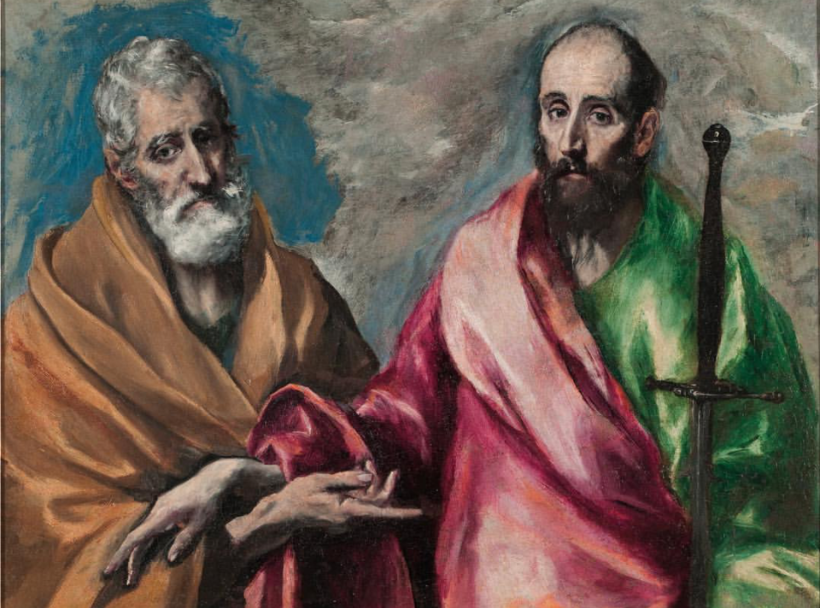St Peter and Paul
"I have kept the faith"
At Caesarea Philippi Jesus asked his disciples, “But who do you say that I am?” Peter replied in the name of the Twelve, “You are the Christ, the Son of the living God.” On the road to Damascus Saul asked, “Who are you, Lord?” It was the Christ, the Son of the living God, who replied, “I am Jesus, whom you are persecuting.” Both Peter and Paul came to realise, not through human inspiration but divine revelation, that Jesus was indeed the Messiah, the Christ, the Son of the living God. This belief brought with it the realization that they had also been chosen and called by him to be his apostles despite their many weaknesses and failures. “My grace is enough for you.” That sense of mission motivated the rest of their lives.
Beside the Sea of Galilee, after the Resurrection, Jesus asked Peter three times, “Do you love me?” He replied, “Lord, you know everything. You know that I love you.” That declaration of love led Peter to over thirty years’ fruitful ministry and service, above all in the Jewish community. Paul, whose mission of over thirty years was to the Gentiles, wrote to the Corinthians, “If I have prophetic powers, and understand all the mysteries and all knowledge, and if I have all faith, so as to remove mountains, but do not have love, I am nothing. Love bears all things, believes all things, hopes all things, endures all things.” Love separated from faith can become a dangerous emotion, while faith separated from love can become sterile and sectarian. Faith has to be lived in love, while love can only be truly experienced in a life of faith. We live in difficult times to be men and women of faith, to be Christian and Catholic. The forces of evil, often camouflaged as good, are ranged on every side against us.
The example and teaching of Peter and Paul encourage us never to give in but to persevere, and to do so with joy and confidence. Always remember Peter’s miraculous escape from prison: he thought he was seeing a vision. “Now I know it is all true. The Lord really did send his angel and has freed me.” Just as there is no faith without love, so there is no faith without martyrdom or love without suffering. Paul wrote to Timothy, “The Lord stood by me and gave me power. The Lord will rescue me from evil and bring me safely to his heavenly kingdom.”
This then is what it means to keep the faith: to live a life firmly rooted in Christ and grounded in the love of God. At the last supper, Jesus told his disciples, “Whoever has seen me has seen the Father.” Just as in Jesus we see God and know him, so in Peter and Paul we see Jesus, the Christ, the Son of the living God, and know him. Today may others see Jesus in us so that we can say with the apostles, “I have fought the good fight to the end; I have run the race to the finish; I have kept the faith; all there is to come now is the crown of righteousness.” I have kept the faith.










